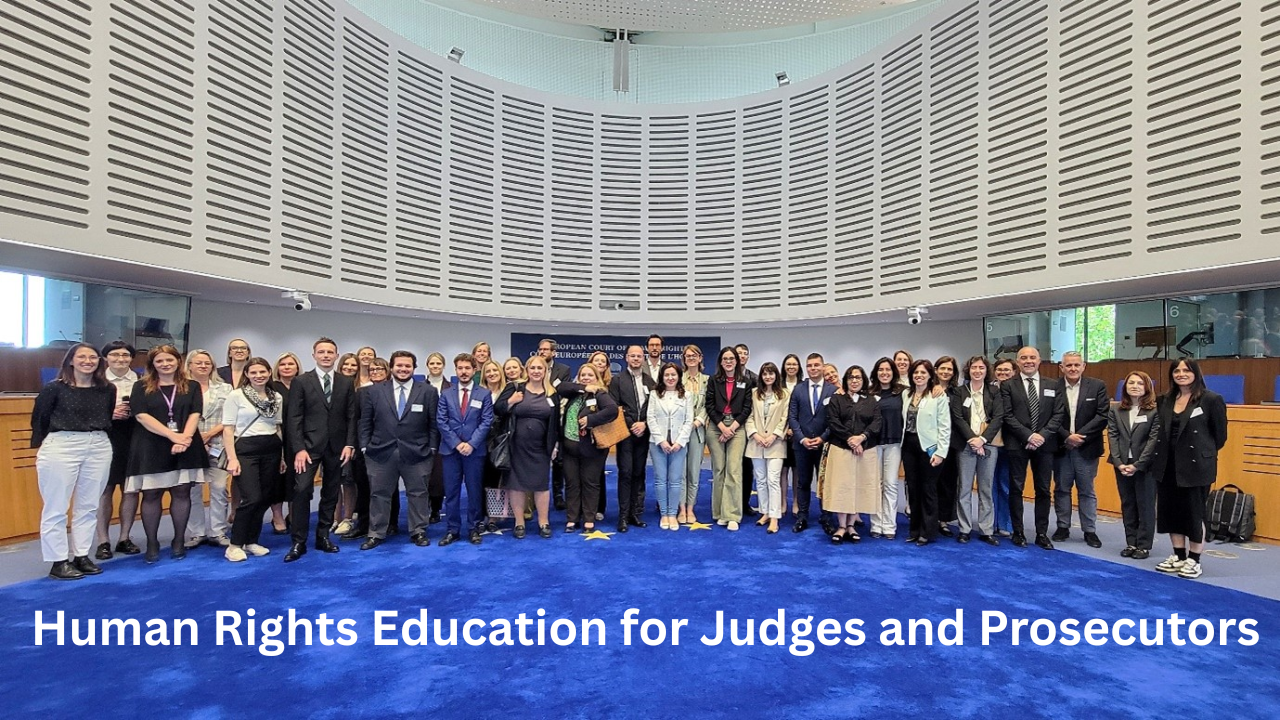
Judges and prosecutors are the cornerstones of a functioning justice system. Their decisions can protect rights—or infringe upon them. In today’s globalized legal environment, where international conventions and domestic human rights laws often intersect, there is a growing imperative: every judge and prosecutor must be trained in human rights principles. Human rights education ensures that justice is not only delivered efficiently but with fairness, dignity, and in alignment with both domestic constitutional values and international standards.
Why Human Rights Training Is Essential for Legal Officers
1. Enforcing Constitutional and International Obligations
Most democratic constitutions embed a bill of rights, and many nations are signatories to human rights treaties such as the ICCPR or the Convention Against Torture. Judges and prosecutors are responsible for interpreting and applying these standards during proceedings.
2. Preventing Misuse of Power
Unchecked prosecutorial decisions or judicial rulings may lead to wrongful convictions, arbitrary detention, or abuse of marginalized groups. Human rights training instills safeguards against such violations.
3. Addressing Social Inequities in Justice
Disadvantaged communities—such as minorities, women, and the poor—often face systemic biases in the justice process. Human rights education helps judges and prosecutors recognize and correct structural inequities.
4. Strengthening Public Trust
A judiciary that visibly upholds human rights principles enhances legitimacy, especially in societies with histories of discrimination, repression, or authoritarian rule.
Core Topics in Human Rights Education for Judicial Officers
| Topic Area | Key Focus |
|---|---|
| Fair Trial Rights | Right to counsel, presumption of innocence, public hearings |
| Equality and Non-Discrimination | Gender justice, caste or racial equity, access for persons with disabilities |
| Due Process Protections | Safeguards during arrest, detention, and evidence gathering |
| Rights of the Accused | Protection from torture, coerced confessions, legal aid |
| Victims’ Rights | Participation, protection, restitution for crime victims |
| International Human Rights Law | Treaties, conventions, and how they align with domestic law |
Effective Methods of Delivering Human Rights Training
1. Scenario-Based Workshops
Interactive sessions using real or hypothetical case studies help judges and prosecutors confront real-world ethical and legal dilemmas.
2. Peer Discussions and Judicial Dialogues
Collaborative learning models allow sharing of best practices, experiences, and culturally specific challenges.
3. Hybrid Learning Formats
Digital modules, recorded lectures, and quizzes allow for flexible, ongoing learning alongside in-person seminars.
4. Inclusion of Human Rights Experts
Involving professionals from human rights commissions, NGOs, and academia enriches the program and brings practical insight.
5. Continued Judicial Education
Human rights training should not be a one-time event. Refresher courses, policy updates, and evolving standards must be incorporated into continuous learning tracks.
Institutional Framework for Implementation
1. Integration into Judicial Academy Curricula
Human rights modules should be embedded in the entry-level and ongoing training programs of national and state judicial academies.
2. Collaboration with International Bodies
Organizations like UNDP, OHCHR, and regional bodies (e.g., African Commission or European Court of Human Rights) can provide technical assistance and curriculum materials.
3. Monitoring and Evaluation
Programs must track changes in legal outcomes—such as increased acquittals due to fair trial recognition or better protection of child victims—as indirect indicators of human rights impact.
4. Localization of Content
While global standards are universal, local legal traditions, cultural sensitivities, and pressing rights issues must inform how training is contextualized.
Benefits of Human Rights Education in the Legal System
| Benefit | Impact on Judiciary and Prosecutorial Work |
|---|---|
| Legal Decision-Making Improved | Rulings become more nuanced, fair, and rights-aligned |
| Greater Accountability | Misuse of discretion and power is reduced through awareness |
| Increased Access to Justice | Disadvantaged litigants are better protected in court processes |
| Reduced Judicial Bias | Promotes impartiality in cases involving minorities or marginalized groups |
| Enhanced Global Reputation | International image of the judiciary improves with human rights compliance |
Case Example: Human Rights in Pretrial Detention Decisions
In one training module, prosecutors and judges are presented with a scenario involving a young detainee held without charge for several weeks. By applying international human rights standards, the participants identify multiple violations: excessive detention, lack of legal aid, and no judicial oversight.
The revised practice outcomes include:
- Immediate bail or release orders
- Strengthening of pretrial review mechanisms
- Recommendations for legislative reform
Such cases underscore how training directly improves justice delivery.
Overview Table
| Element | Description |
|---|---|
| Target Audience | Judges, magistrates, public prosecutors |
| Key Learning Themes | Equality, due process, fair trials, protection of vulnerable groups |
| Training Methods | Case-based learning, expert-led workshops, digital modules |
| Institutional Support | Judicial academies, international organizations, human rights commissions |
| Impact Metrics | Reduction in rights violations, improved legal protections, fairer rulings |
| Long-Term Goal | Justice systems rooted in dignity, equality, and legality |
Conclusion
Incorporating human rights education into the training of judges and prosecutors is no longer optional—it is foundational to justice in the 21st century. Whether it’s safeguarding the rights of the accused, ensuring fairness in sentencing, or protecting victims from further harm, human rights principles empower judicial officers to fulfill their constitutional and moral duties. A rights-respecting judiciary is not just a legal ideal—it’s a democratic necessity.
3 One-Line FAQs
Q1: Why is human rights education crucial for judges and prosecutors?
It ensures that justice is administered fairly, equitably, and in line with constitutional and international standards.
Q2: What topics are covered in human rights judicial training?
Key areas include fair trials, due process, equality before the law, and the protection of vulnerable groups.
Q3: How can this training be implemented effectively?
Through interactive modules, expert-led discussions, peer collaboration, and ongoing institutional support.

